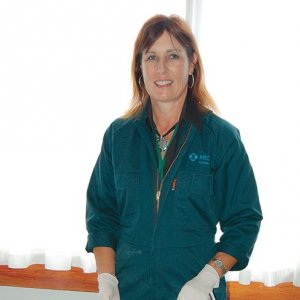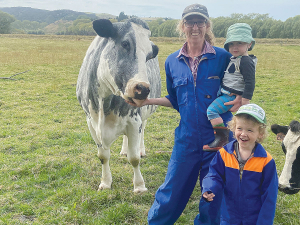Dairy women donned plastic gloves and aprons for a close-up look at endometritis symptoms in cows’ uterus brought to the ‘Be Clean and Cycle Madly’ workshop.
Some thought it was about bicycling, but it was actually about infection in the lining of the uterus which – as in women – can cause problems with fertility.
Kim Kelly, a veterinary technical advisor with MSD Animal Health, who ran the workshop, said after calving every cow has some bacterial contamination in the uterus. Most clear it naturally but 10-20% will not and develop the chronic infection of the uterus called endometrisis. It results in reduced conception, increased time to conceive, prolong calving and decreased productivity.
A number of factors affect at-risk cows including assisted calvings, dead calves, and cows that have borne twins, but Kelly emphasised the whole herd should be checked because at least 50% of the cows that develop endometritis are not at risk. Nor will all at-risk cows develop it.
One Whakatane dairy farmer said it was the best workshop she had attended – hands-on and relevant. Checking all cows, rather than just at-risk ones, was new information for her and the presence of pus was easy to check using the Metricheck device shown at the workshop. Any cows showing pus could then be treated with penicillin.
One woman who had checked all the cows this year, rather than the at-risk ones, found 22% more than usual were infected.















